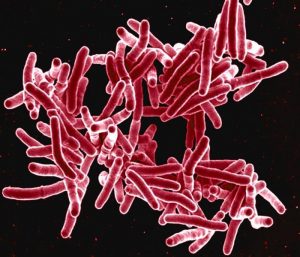The Cobb County Board of Health notified officials at Kennesaw State University in Kennesaw, GA of a positive tuberculosis case in a student at the school. This has prompted the university to schedule free tuberculosis testing for members of the campus community this week.

Kennesaw State’s WellStar Student Health Services, in conjunction with staff from the Cobb County Board of Health, will provide the Tuberculin Skin Tests (TST) in the University’s Social Sciences Building. The first part of the test will be administered on Tuesday, Feb. 3, and health officials will return to campus on Thursday, Feb. 5 to interpret the skin test results.
According to Dr. Megan Bowles, director of Kennesaw State’s Student Health Services, while the risk of exposure and infection to the general campus population is extremely low, the university is taking every precaution as recommended by the state of Georgia tuberculosis guidelines. Campus officials are working with the Cobb County Board of Health to address the situation and to ensure the health and safety of all students, faculty and staff.
University officials have notified the entire campus community through multiple channels, and sent separate notifications to those who had frequent contact with the infected individual. The additional notification, which was sent to approximately 200 persons, strongly encourages them to receive a TST to identify if any exposure has occurred. Individuals who do not participate in the on-campus testing are being urged to provide a written report from a physician verifying that a test was conducted and the test results.Failure to provide test documentation will result in further contact by the Cobb County Health Department.
TB is a bacterial infection caused by Mycobacterium tuberculosis. It primarily infects the lungs but can infect virtually any organ in the body. Extrapulmonary infection is more common in children and those with immunodeficiencies. Less than 10% of immunocompetent people exposed will develop TB in their lifetime.
 According to the US Centers for Disease Control and Prevention (CDC), the general symptoms of TB disease include feelings of sickness or weakness, weight loss, fever, and night sweats. The symptoms of TB disease of the lungs also include coughing, chest pain, and the coughing up of blood. Symptoms of TB disease in other parts of the body depend on the area affected.
According to the US Centers for Disease Control and Prevention (CDC), the general symptoms of TB disease include feelings of sickness or weakness, weight loss, fever, and night sweats. The symptoms of TB disease of the lungs also include coughing, chest pain, and the coughing up of blood. Symptoms of TB disease in other parts of the body depend on the area affected.
TB is spread person-to-person when an infected person coughs, talks, sings or sneezes. Typically, only people who have close, day-to-day contact with an infected person are at risk of contracting the disease.
The Mantoux tuberculin skin test (TST) is the standard method of determining whether a person is infected withMycobacterium tuberculosis. The TST is performed by injecting 0.1 ml of tuberculin purified protein derivative (PPD) into the inner surface of the forearm.
After between 48 and 72 hours, the reaction is measured in millimeters of the induration (palpable, raised, hardened area or swelling).

